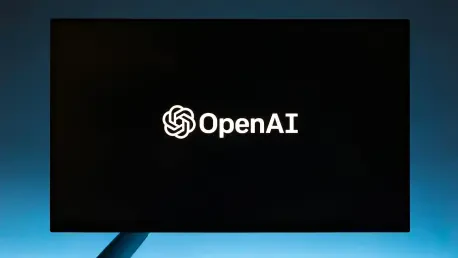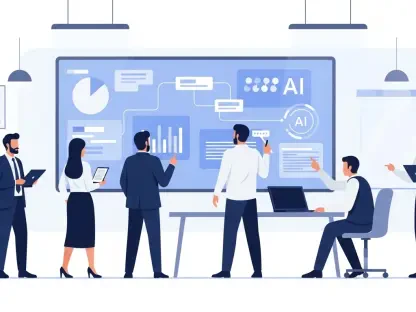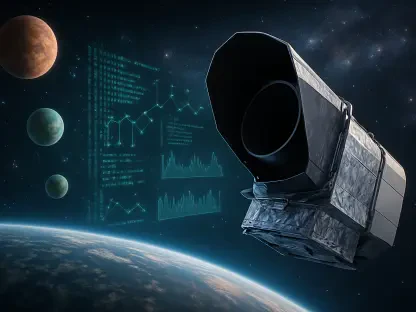The announcement of a strategic alliance between Google Cloud and OpenAI highlights a significant evolution in the competitive world of artificial intelligence technologies. Revealed during Alphabet’s second-quarter earnings call, this partnership marks a substantial shift in the tech industry’s approach to AI infrastructure, given the heightened competitive stakes. This collaboration allows OpenAI to utilize Google Cloud’s expansive infrastructure for AI workloads, marking a departure from its previous dependence on Microsoft Azure. The development is remarkable, particularly because both entities directly compete in AI spheres, including large language models with Google’s Gemini suite and OpenAI’s GPT models.
Navigating the Competitive AI Landscape
Shared Goals in Unprecedented Collaboration
The primary theme of the Google Cloud and OpenAI partnership is the mutual benefit derived from shared AI infrastructure, echoing a broader industry trend toward pragmatic alliances. Traditionally competitors, both companies have discovered common ground in their need for powerful, scalable compute resources. Engaging in such a partnership, they epitomize a new industry direction where competitive entities pursue collaborative strategies to address technical demands. This movement is underpinned by Google’s role as a neutral platform that fosters AI innovation, even with its competitors, establishing itself as indispensable in the developing phase of AI maturity.
Impact on Google Cloud’s Revenue and Investment
The partnership significantly contributed to a 32% surge in Google Cloud’s revenue, as analyzed by AInvest, reflecting a more comprehensive market interest in advanced AI infrastructure. In response to an anticipated increase in demand, Google has planned to boost its capital expenditures by $10 billion from this year, reaching $85 billion total, to uphold its cloud services and AI-focused data centers. This monumental investment underscores Google’s strategic dedication to expanding its AI infrastructure capabilities, aligning with its broader corporate AI strategy, which includes offerings such as Trillium TPUs. This alignment also highlights its intention to remain a formidable player in the swiftly progressing AI arms race.
The Broader Industry Context
Accelerated AI Adoption Across Sectors
Analysts and industry observers suggest that collaborations like the one between Google Cloud and OpenAI are likely to accelerate AI adoption across various sectors. Industry insider posts reflect a burgeoning sentiment that such partnerships could enhance innovation and expedite application deployment, especially in regulated industries necessitating robust computational resources. Nevertheless, these collaborations might ignite concerns about data privacy and antitrust issues, given Google’s ongoing legal challenges related to market dominance. This aspect emphasizes the intricate balance between cooperation and competition within the AI sector, as companies like Google navigate regulatory scrutiny while pushing technological boundaries.
Dynamics Between Technology Giants
Beyond immediate business impacts, this partnership underscores the evolving dynamics between technology giants and highlights the necessity of collaborative ventures in overcoming technical barriers. OpenAI’s decision to partner with Google Cloud could pressure Microsoft, its principal supporter, to further enhance its cloud AI offerings and infrastructure capabilities. This competitive pressure illustrates the ripple effects such collaborations can create, pushing technological boundaries across the industry. Sundar Pichai’s commentary during the earnings call emphasized AI’s integration into Google’s core operations, particularly the search engine. AI enhancements, such as AI Overviews reaching billions of users, have strengthened rather than undermined Google’s core offerings.
The Path Forward
The Emergence of Hybrid AI Ecosystems
The alliance between Google and OpenAI exemplifies a noteworthy trend of cooperation amid competition, symbolizing a strategic approach potentially redefining how major tech firms collaborate in innovative domains. Industry experts suggest that such partnerships could usher in hybrid AI ecosystems, amalgamating diverse technologies to provide comprehensive solutions. Concurrently, Google’s collaboration with Nvidia to use Blackwell GPUs enhances Google Cloud’s appeal by integrating top-tier hardware into its platform offerings. These developments indicate a future where tech giants will need to navigate regulatory hurdles and competitive dynamics to extend the boundaries of AI innovation.
Anticipating Future Developments
The announcement of a strategic alliance between Google Cloud and OpenAI highlights a pivotal development in the realm of artificial intelligence technologies, underscoring a new phase in the competitive tech landscape. Unveiled during Alphabet’s second-quarter earnings call, this partnership marks a noteworthy transformation in how the tech industry approaches AI infrastructure, especially amid intense competition. This collaboration permits OpenAI to employ Google Cloud’s comprehensive infrastructure for AI tasks, leading to a significant shift from its prior reliance on Microsoft Azure. It’s a notable evolution since both companies are direct competitors in AI, particularly in the realm of large language models. Google’s Gemini suite and OpenAI’s GPT models are central figures in this competitive sphere. The alliance showcases a significant strategic move, illustrating how tech giants are innovating amidst fierce competition, while enhancing their capabilities. Both entities can potentially benefit by harnessing each other’s strengths, impacting the broader AI ecosystem.









